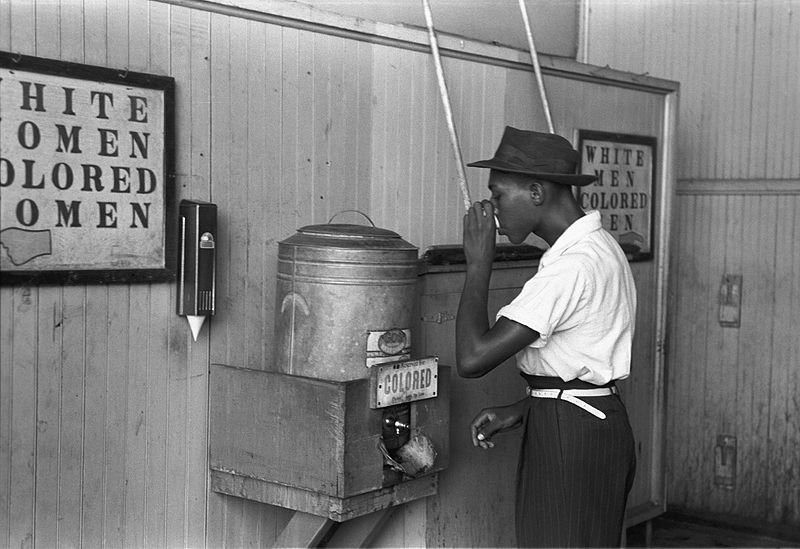
adjective
- pertaining to a racial policy, formerly practiced in some parts of the United States, by which black people could be segregated if granted equal opportunities and facilities, as for education, transportation, or jobs.
The doctrine that racial segregation is constitutional as long as the facilities provided for blacks and whites are roughly equal. This doctrine was long used to support segregation in the public schools and a variety of public facilities, such as transportation and restaurants, where the facilities and services for blacks were often clearly inferior. For decades, the Supreme Court refused to rule the separate but equal doctrine unconstitutional, on the grounds that such civil rights issues were the responsibility of the states. In the decision of Brown versus Board of Education, in 1954, the Supreme Court unanimously ruled separate but equal schools unconstitutional. This ruling was followed by several civil rights laws in the 1960s. (See also Plessy versus Ferguson.) Relating to or affected by a policy whereby two groups may be segregated if they are given equal facilities and opportunities. For example, They’ve divided up the physical education budget so that the girls’ teams are separate but equal to the boys. This idiom comes from a Louisiana law of 1890, upheld by the U.S. Supreme Court in Plessy v. Ferguson, “requiring all railway companies carrying passengers on their trains in this state, to provide equal but separate accommodations for the white and colored races.” Subsequently it was widely used to separate African-Americans from the white population through a general policy of racial segregation. In 1954, in a unanimous ruling to end school segregation, the Supreme Court finally overturned the law (in Brown v. Board of Education).
 Liberal Dictionary English Dictionary
Liberal Dictionary English Dictionary